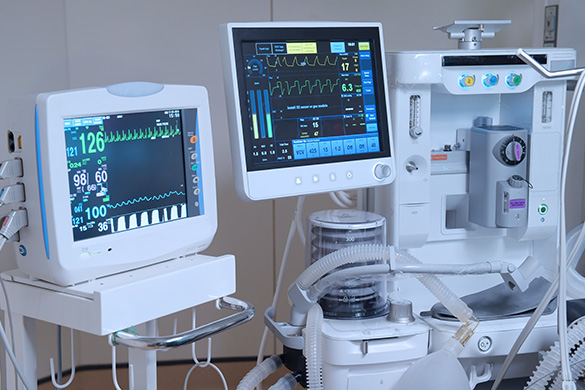When a woman suffers from a gynecological prolapse, surgical implants can help support her vaginal walls with a net-like material. Transvaginal mesh implants became popular in the early 2000s, despite a lack of any studies on long-term effects of the implants. Shortly, the issues with the mesh became clearer. From 2005 to 2010, the FDA was notified of up to 4,000 incidents where transvaginal meshes failed or malfunctioned in some way, resulting in injury or death. If you or a loved one has suffered from a transvaginal mesh malfunction, our attorneys at BCH understand your pain.
Reasons you can trust BCH with your case:
- Super Lawyers®, by Thompson Reuters – Camp Bailey (2016-2018)
- Super Lawyers® Rising Stars™, by Thompson Reuters – Rob Cowan (2005, 2011), Aaron Heckaman (2010), Camp Bailey (2007-2009, 2011-2013)
- Top 100 Trial Lawyers by The National Trial Lawyers – Aaron Heckaman (2015), Camp Bailey (2011 - 2013)
- The Top Trial Lawyers in America® by the Million Dollar Advocates Forum – Aaron Heckaman (2015)
We are trusted nationwide with some of the nation’s largest and most severe cases of medical implant injury cases—so if you entrust your case to us, you can be confident that you’ve chosen seasoned and knowledgeable attorneys. We offer free consultations so you can get the guidance you need. Call (713) 909-7910.
The Effects of Transvaginal Mesh Malfunctions
The use of surgical meshes has a high rate of incidence for multiple complications. The chief of these complications is erosion.
In 10% of patients, the mesh wears through a woman’s tissues, leading to exposure of the mesh. The effects are deeply painful and difficult to correct—multiple costly surgeries may be required and still not fix the problem permanently.
Erosion due to the mesh can lead to another complication: perforation of the organs. Organs adjacent to the mesh may be punctured, resulting in additional complications. Since the major organs in that region are digestive, perforated organs can lead to waste in the bloodstream, resulting in septic shock. As the mesh causes damage in the area, patients often require colostomies or reconstructive bowel surgery. When a woman requires medical treatment, she has the right to expect treatment that makes her problems better, not worse. At BCH, we protect women who are injured by transvaginal meshes that have not been sufficiently tested for their safety. Our attorneys also fight for families who lost a wife, mother, sister, or daughter to septic shock or other common mesh complications.
Those responsible for your injuries should pay for their actions—contact BCH today for a free consult.

